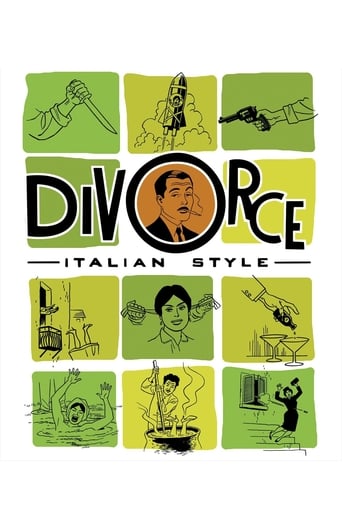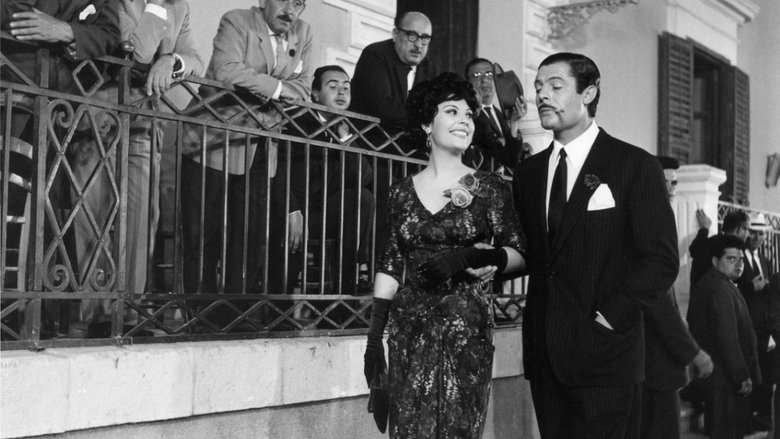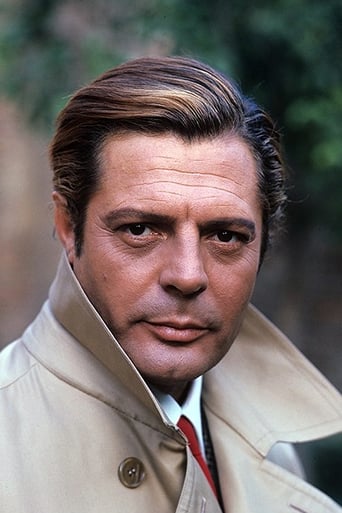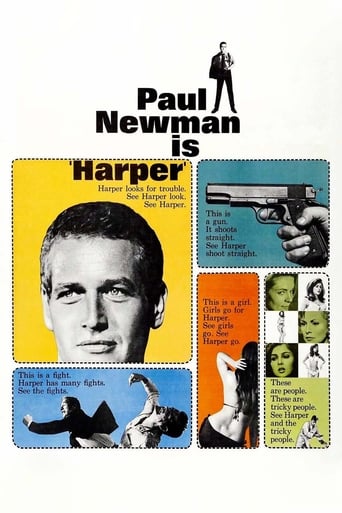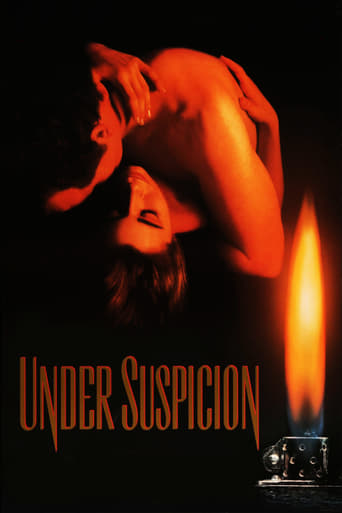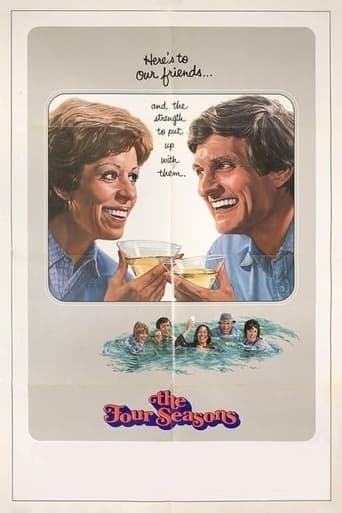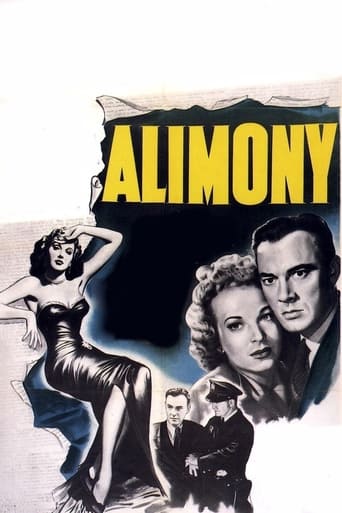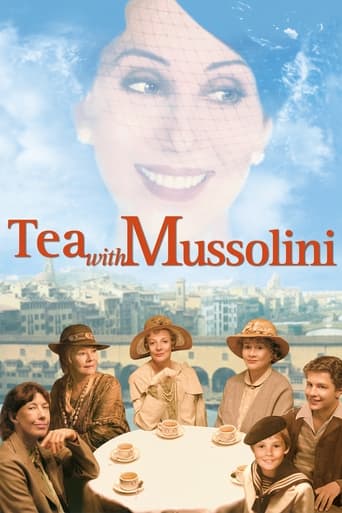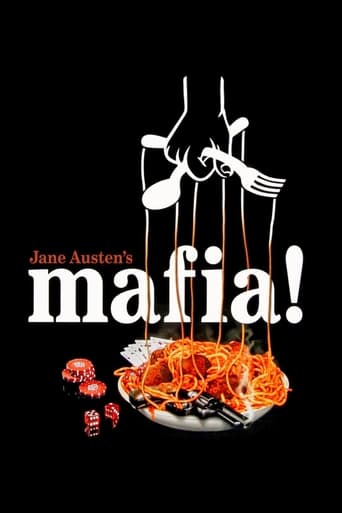Divorce Italian Style (1961)
Ferdinando Cefalù is desperate to marry his cousin, Angela, but he is married to Rosalia and divorce is illegal in Italy. To get around the law, he tries to trick his wife into having an affair so he can catch her and murder her, as he knows he would be given a light sentence for killing an adulterous woman. He persuades a painter to lure his wife into an affair, but Rosalia proves to be more faithful than he expected.
Watch Trailer
Cast


Similar titles
Reviews
That was an excellent one.
Please don't spend money on this.
A lot of fun.
In truth, there is barely enough story here to make a film.
I think Divorzio all'italiana is an all-time masterpiece of movie-making art. It has amazing depth, and an amazing amount of detail. The cinematography, the script, the acting, the music – all wonderful. The thing is just uncanny. Even though my understanding of Italian is limited to maybe a dozen words, I felt drawn to listening to the dialog – listening in order to get whatever meaning I could pick up from the actors' InFlection and InTonation. The actors were just fantastic.The screenplay is a ruthless skewering of post world war 2 Italy, revealing how Italians were becoming fully aware of the changes that were happening in the rest of the world, revealing how they were being affected by them – appearing eager to adopt them, but at the same time suffering from some kind of insidious stagnation resulting from the Italy's interpretation of the mores imposed by the Roman Catholic church – and revealing the problems that resulted from the conflict between change and stagnation. Some of the changes that were referenced, to hilarious effect as they reached stagnant Italy, were rock and roll, men orbiting the earth, and perhaps the most hilarious, the Italian movie released just a short time earlier: La Dolce Vita.Divorzio all'italiana's main character, FeFe, to get the changes he wants in his life, he doesn't try to change the system; he works within the system. He carries out what seems like a rather unlikely strategy, however it is a strategy that works, sort of. In the process of carrying it out, the rot within the system gets exposed, and the humor gets created.In most movies, the music that is used – it is used to tell the audience how the movie makers want the audience to feel about the things that are being said, about the things that are going on, about how the characters must feel. The dialog tells viewers what the the characters Think; the music tells viewers what the movie makers want the characters, and the viewers, to feel about that. It is, in most movies, as if the dialog and the actors need some extra help emoting, so the director calls in the composer to help out. "Now you know how you are supposed to feel about this, audience." This is NOT how the music is used in Divorzio all'italiana. I am not sure I can explain what the music does in Divorzio all'italiana, what it does differently – but the music does something different, and wonderful. I don't think I have ever seen another movie where I enjoyed the music so much, or where it supported the movie and "belonged" to the movie so well. Just another one of the little details that contribute to Divorzio all'italiana being a masterpiece. By the way, for most of the dialog, I needed a translation, but not for the title. I find it hard to believe that there are any speakers of English who couldn't figure out the meaning of "Divorzio all'italiana" without a translation.
DIVORCE Italian STYLE is a comedy drama about love pains and problems with laws.An impoverished Sicilian nobleman is married with an unattractive but devoted wife. However, he is in love with his, a much younger and attractive, cousin. He lives, besides his wife, with his elderly parents, his spinster sister and her boyfriend. The divorce was illegal in Italy at that time. He has, unsuccessfully, tried to move away from his wife. Perhaps he will try to kill his wife?! A young cousin is so beautiful. He has a very little time to come up with something. A local story of a woman who killed her husband in a rage of jealousy has gave him a great idea...This satirical farce, which includes an affair in a marriage, love for a minor girl and a murder of honor is, in spite of moral transgressions, a very interesting film. Mr. Germi has made a series of wonderful plots, in which he has, in a satirical manner, criticized laws in the Italian society. He has, very imaginatively, combined fantasies with reality. Therefore, the malicious actions of the main protagonist seem quite charming. A happy ending is the culmination of irony.Scenery and music completely correspond with love pains in this film. Characterization is very good.Marcello Mastroianni as Ferdinando Cefalù is a sympathetic and cunning man at the same time. He, perhaps, goes through a midlife crisis. However, his ambitions and plans, which he has prepared with a large dose of elegance and serenity, are quite childish. His character is filled with pathos, despair and longing. Mr. Mastroianni has offered an excellent performance, which is the foundation of a top class entertainment in this film.His support are Daniela Rocca (Rosalia Cefalù) as his boring wife, Stefania Sandrelli (Angela) as his passion, lust and love and Leopoldo Trieste as Carmelo Patanè as his "salvation".This is a very entertaining movie about love torments and...still "natural laws".
A Sunday afternoon respite from my more usual, of late, darker and edgier, exploitation movies, allows me to watch again, after a gap of many years, this post neo-realist gem from director, Pietro Germi. Still shot in some way as the neo-realist films were, with stunning b/w cinematography, much location shooting and those streets filled with emotionally charged locals, but without the sentimentality that could mar the earlier films. A comic opera of a tale, full of family honour and dishonour, male entitlement and female subservience. Not that light for a Sunday afternoon then! but this is deftly done with light touches and strong sense of humour. The heartfelt traditions and cornerstones of Italian society, or more especially, here Sicilian are bring gently mocked. Marcello Mastroianni is masterful in the lead and Stefania Sandrelli utterly lovely as the young girl of his fancy. This was an early film for her but she is still working and was to star in the same director's later Seduced and Abandoned, Bertolucci's 1970 The Conformist and also appear in a favourite giallo of mine, Black Belly of the Tarantula.
In my lifetime I have seen about ten to twenty films with Marcello Mastroianni in them, including two made before he made "Divorce Italian Style", but for me the film that imprinted himself to American film audiences was this one. His Baron Ferdinando Cefalo is one of the cleverest homicidal figures in movies, and yet one of the most bumbling. One can say he succeeds despite himself. Set in Sicily, then as now the poorest area of Italy and one of the most backward, the film shows how the Baron is bored by his present wife Rosalia (Daniela Rocca), a good woman but somewhat overwhelming in her unwanted affection. Rosalia is not unattractive (in a lightly heavy manner), but she is certainly not currently able to get more than a mild interest in her husband in whatever she is doing. The Baron is quite interested in his young female cousin Angela (Stefania Andrelli), a vibrant and young woman who is about to go to convent school. Baron Ferdinando would love to marry Angela, but how to get rid of Rosalia? Divorce (as Americans know it) is not liked in Catholic countries, particularly in the most backward sections of them. But the laws of the day in Italy (say about 1955 or so) have a crazy version of the so-called "unwritten law" regarding shooting adulterers...except the Italian version allows for the shooting of the guilty spouse by his or her wronged spouse, and the granting of a relatively light sentence (believe it or not three years!). The problem is that the killer must catch the adulterous pair in their act of guilty passion when they are doing it. And there must be sufficient emotional pressure on the perpetrator to justify a case of sudden homicidal impact. Baron Ferdinando has to orchestrate out of artificial methods the exact situation to enable him to legally kill Rosalia. He presses ahead, and his society is shown for all it's secrets and backwardness.First, he studies up on the law and recent cases, even checking out the grand Italian lawyer with his flowery oratory style who he will use (later on we hear the lawyer's possible future speech describing some of the actions of the Baron as he pursues his dream). Then he has to find a good patsy - who is the other man? Here he finds this fellow is gay, that one is happily married, that one (in the choir) has...well a physical problem. Finally he selects an old friend of Rosalia, a painter from Messena named Carmelo Patane (Leopoldo Trieste). The Baron gives Carmelo a restoration job in his villa (I'm kind when I call his ramshackle home that), and then makes sure that Rosalia and Carmelo are left by themselves a lot.In his way he tries to be modern in this 18th Century atmosphere. He tape records the private conversations of Rosalia and Carmelo to see if they have finally broken down to commit their adultery. This is far more tedious than he hoped, as Rosalia tries to maintain her loyalty to his husband, and Carmelo keeps a major secret from Rosalia. As they break down there is also the problems of the love-sick maid who Carmelo is also attracted to. And as each problem arises we watch the Baron try to figure out how to overcome them.When the crisis arises finally we see the locals at their worst, with the men laughing at the Baron's being cuckolded, but everyone freezing out him and his family because his reaction is to take to his bed. But he is only waiting for the right moment to avenge his honor. When will it occur, or will it ever occur?Italian cinema had been part of the international film language since 1945 with Neo-realism, and masters like Rossalini, De Sica, and (later) Fellini. Some of the films of the 1950s, like the original "Big Deal On Madonna Street", included Mastroianni in the casts, but others (Vittorio Gassman, Toto) were the stars or shared the fun. This film put him on the map for our audiences, with his proper, well dressed, soft-spoken minor aristocrat, with his "tic" (he clicks his mouth when something unexpected or unpleasant occurs around him). With slicked down hair and droopy, trimmed mustache, he looks like a man whose been losing at gambling tables all night at the rate of one lira an hour - no smile, but no real feeling of great loss. It was a memorable dead pan performance. He never quite repeated it (most of his characters were far more lively in their antics), but it stamped itself on American audiences. Soon his series of films with Sophia Loren cemented him into the position of Italy's leading romantic male film figure and great farceur. He never failed to live up to those two views in all of the films he appeared in until his death in 1996.

